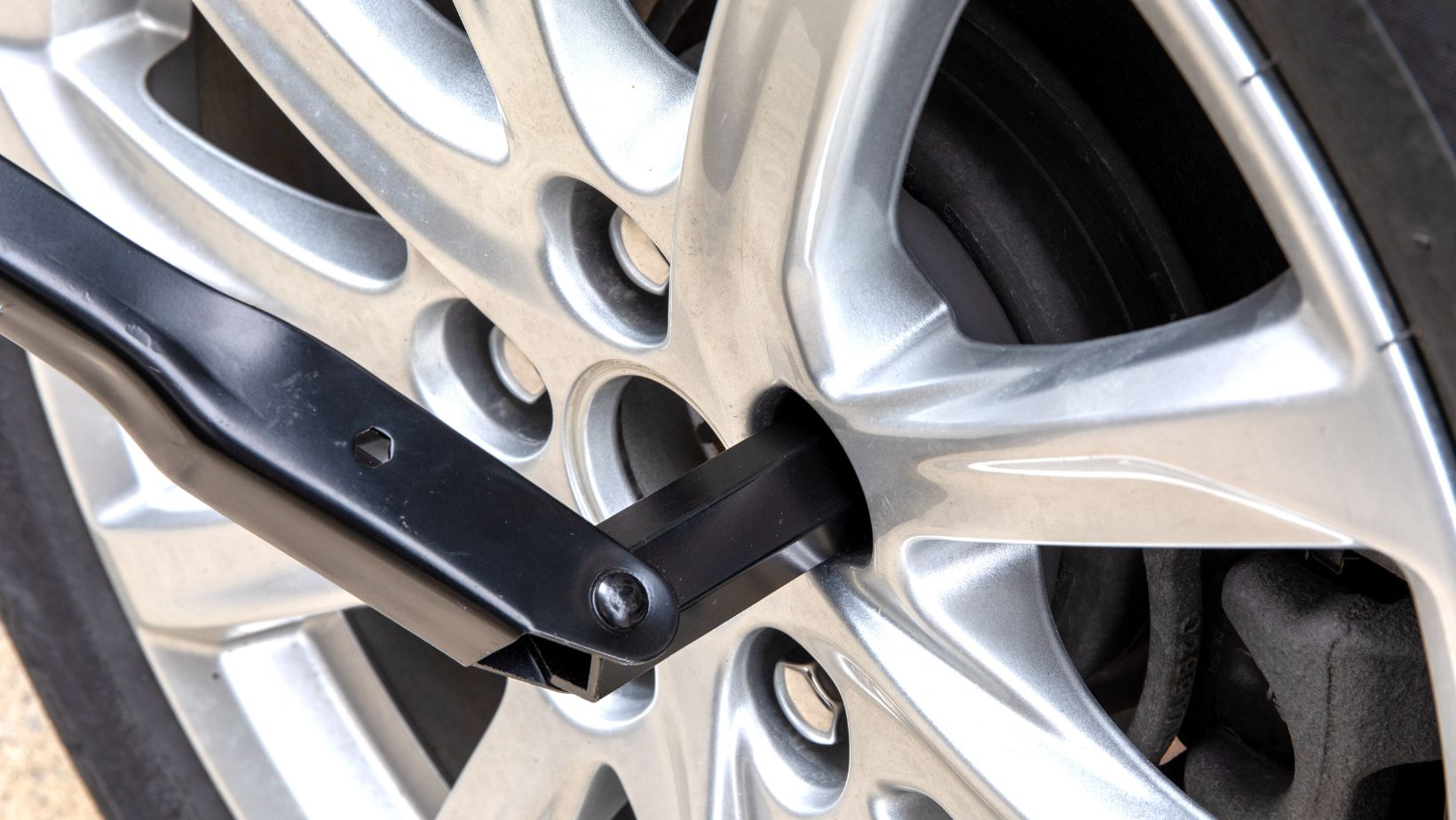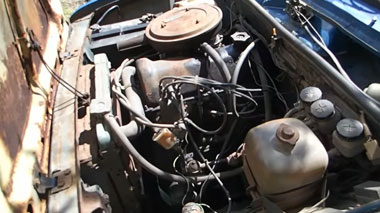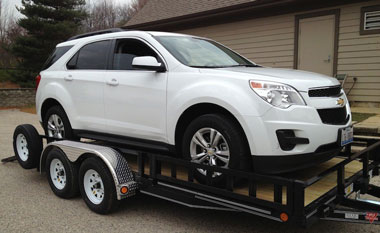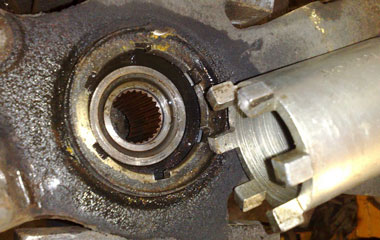
Are you wondering if aluminum lug nuts are safe? You’re not alone. Many people have heard that aluminum is a soft metal and worry that it might not be strong enough to keep their wheels securely attached.
Others are concerned about corrosion, since aluminum is prone to oxidizing.
If you’re like most people, you probably don’t think too much about the lug nuts on your car. After all, they’re just there to keep your wheels securely attached, right? Well, it turns out that the type of lug nuts you use can actually make a big difference in terms of safety.
So, are aluminum lug nuts safe? In general, yes, aluminum lug nuts are perfectly safe. In fact, they’re often used as an upgrade over steel lug nuts because they’re lighter and less likely to corrode.
However, there is one potential downside to using aluminum lug nuts: they can be easier to strip than steel ones. If you do decide to use aluminum lug nuts on your car, be sure to use a torque wrench when tightening them. This will help ensure that they’re properly tightened and less likely to come loose or strip.
Also, check them periodically to make sure they’re still tight. If you notice any looseness, retighten them right away. Overall, aluminum lug nuts are a perfectly safe choice for most cars.
Just be sure to follow the proper installation and maintenance procedures and check them regularly for any signs of wear or looseness.
Pros And Cons of Aluminum Lug Nuts
If you’re looking for a lug nut that’s both strong and lightweight, aluminum is a great option. Aluminum lug nuts are also less likely to corrode than other types of lug nuts. However, there are a few potential drawbacks to consider before making your purchase.
Aluminum lug nuts can be difficult to tighten by hand, so you may need to use a power tool. They can also loosen more easily than other types of lug nuts, which means you’ll need to check them regularly. And finally, aluminum lug nuts can be damaged by over-tightening, so be sure to follow the manufacturer’s instructions carefully.
Aluminum Lug Nuts Overview
If you’re in the market for a new set of lug nuts, you might be wondering if aluminum is the way to go. Here’s a quick overview of aluminum lug nuts to help you make your decision. Aluminum lug nuts are much lighter than their steel counterparts, which can be a benefit if you’re looking to reduce weight on your vehicle.
They’re also less likely to rust, so they’ll keep their good looks longer. However, aluminum isn’t as strong as steel, so it’s important to choose a high-quality option if you go this route. One thing to keep in mind with aluminum lug nuts is that they require more torque to install and remove than steel lug nuts.
This means that you’ll need a higher-end wrench or impact gun to do the job right. Overall, though, aluminum lug nuts are a great option for many vehicles – just be sure to do your research before making your purchase!
Aluminum Lug Nuts Vs Steel
If you’re in the market for new lug nuts, you may be wondering if aluminum or steel is the better option. Here’s a quick rundown of the pros and cons of each material to help you make an informed decision: Aluminum Pros:
-Lighter weight means reduced unsprung weight, which can improve handling -Corrosion resistant -Non-magnetic (won’t interfere with sensors like ABS)
Cons: -Softer metal means they can strip more easily when tightened too much -Not as strong as steel so they may shear off under extreme loads (i.e. off-roading)
Steel Pros: -Stronger than aluminum -Won’t strip as easily when tightened
-Cheaper than aluminum Cons: -Heavier than aluminum, which can negatively impact handling and fuel economy
Forged Aluminum Lug Nuts
Aluminum lug nuts are a great way to lighten up your ride. Forged aluminum is much stronger than cast aluminum, making it ideal for high performance applications. These lug nuts are also anodized for increased durability and corrosion resistance.
Titanium Lug Nuts
If you’re looking for a high-quality, durable set of lug nuts, titanium is the way to go. Titanium lug nuts are made from aircraft-grade aluminum and are 50% lighter than steel lug nuts. They’re also corrosion-resistant and have a higher strength-to-weight ratio than any other type of lug nut.
Titanium lug nuts are available in a variety of sizes and styles to fit your car or truck. You can choose from traditional hex head or conical seat designs. Some sets even come with a adapter that allows you to use them on both OEM and aftermarket wheels.
Installing titanium lug nuts is simple and can be done at home with just a few tools. First, make sure your wheel studs are clean and free of debris. Next, use an impact wrench to loosen the old lug nuts (be sure to remove them completely).
Finally, thread on the new titanium lug nuts by hand until they’re snug against the wheel hub. Use the impact wrench again to tighten them down, but don’t overtighten – just snug is good! Once installed, your titanium lug nuts will provide years of trouble-free service.
They’ll keep your wheels securely attached while withstanding the elements better than any other type of nut out there. So if you want the best possible protection for your investment, go with titanium!
Rays Duralumin Lug Nuts Overview
If you’re looking for a set of lug nuts that are both strong and light, then you should definitely check out Rays Duralumin lug nuts. Made from an aluminum alloy that is used in aircraft construction, these lug nuts are 50% lighter than your average steel lug nut yet just as strong. In addition to being incredibly strong, the duralumin material used to make these lug nuts is also highly resistant to corrosion.
So whether you live in a wet or dry climate, your Rays Duralumin lug nuts will continue to look great year after year. One thing to keep in mind is that because these lug nuts are so light, they can easily be damaged if not handled properly. So be sure to use a socket wrench with care when installing or removing them.
Overall, Rays Duralumin lug nuts are an excellent choice if you’re looking for a high-quality and lightweight set of lug nuts. They may be slightly more expensive than other options on the market but they’re definitely worth the investment.

Aluminum Lug Nuts on the Street
If you’re looking to add a little extra style to your ride, or if you just want to change things up a bit, aluminum lug nuts are a great option. They come in a variety of colors and styles, so you can really make your car stand out. And they’re not just for looks – aluminum lug nuts are actually stronger than the standard steel ones, so you can rest assured that your wheels are well-protected.
Installing aluminum lug nuts is relatively simple – just be sure to use the correct size socket (usually 12 or 13mm). Once they’re tightened down, give them an extra quarter turn with your wrench to ensure that they’re secure. And that’s it!
With aluminum lug nuts on your wheels, you’ll be turning heads all over town.
Steel Lug Nuts
If you’re looking for a more durable and reliable option for your vehicle’s lug nuts, steel lug nuts may be the way to go. These types of lug nuts are typically made from hardened steel and feature a black oxide or zinc plating for corrosion resistance. Steel lug nuts also tend to be significantly stronger than their aluminum counterparts, making them less likely to strip or break during use.
There are a few things to keep in mind if you’re considering steel lug nuts for your vehicle. First, because they’re generally thicker and heavier than aluminum options, they can require slightly more torque to properly install. Secondly, while most steel lug nuts will come with a protective coating to help prevent rusting, it’s still important to check them periodically and clean off any debris or moisture that could cause corrosion.
Overall, steel lug nuts offer many benefits over traditional aluminum options. If you’re looking for increased durability and strength, along with better resistance to corrosion, they may be the right choice for your vehicle.
Which is Better Steel Or Aluminum Lug Nuts?
This is a difficult question to answer as it depends on what you are looking for in lug nuts. Both steel and aluminum have their benefits and drawbacks, so it really depends on your individual needs. Some people prefer steel lug nuts because they are stronger and more durable.
Steel is less likely to strip than aluminum, so if you are doing a lot of off-roading or heavy duty driving, steel may be the better option. However, steel lug nuts are also heavier than aluminum, so they can add unnecessary weight to your vehicle. Aluminum lug nuts are lighter than steel, so they can help reduce the overall weight of your vehicle.
Aluminum is also more resistant to corrosion than steel, so if you live in a coastal area or somewhere with high humidity, aluminum may be the better choice. However, aluminum lug nuts can strip more easily than steel ones, so they might not be ideal for heavy duty driving conditions.
What Metal is Best for Lug Nuts?
There are many different types of metals that can be used for lug nuts, but the best option is to use a high-strength steel. This type of steel is specifically designed to withstand high loads and torque, making it an ideal choice for use in vehicle applications. Other metals, such as aluminum or titanium, may be lighter weight but they are not as strong and can break under heavy loads.
Can You Torque Aluminum Lug Nuts?
Yes, aluminum lug nuts can be torque. Torque is the amount of force required to turn or rotate an object. The units for torque are usually foot-pounds (ft-lbs) or Newton-meters (Nm).
When tightening lug nuts, it’s important to use the correct torque setting. If they’re too loose, the wheels may come off while driving; if they’re too tight, the lugs may strip the threads or break. Aluminum lug nuts are softer than steel ones, so they’re more susceptible to stripping.
That’s why it’s important to use a lower torque setting when tightening them. For most applications, a good rule of thumb is to use about half the torque that you would use for steel lug nuts. So, if your vehicle’s owner manual says to tighten the steel lug nuts to 100 ft-lbs, you would only tighten aluminum ones to 50 ft-lbs.
If you don’t have a torque wrench, it’s better to err on the side of caution and go with a lower setting. Many hardware stores sell small click-type torque wrenches that are easy to use and relatively inexpensive.
Do Aluminum Wheels Need Special Lug Nuts?
If you have aluminum wheels on your vehicle, you will need to use special lug nuts when changing or rotating your tires. These lug nuts are designed specifically for use with aluminum wheels and help to prevent damage to the wheel. While most aftermarket wheel companies include these special lug nuts with their products, you can also purchase them separately at most auto parts stores.
Why not to buy Aluminum wheel nuts/best wheel nuts are not Aluminum wheel lug nuts/Wheel nuts stuck
Conclusion
Aluminum lug nuts are a great option for many reasons. They are lighter than steel lug nuts, so they can help save on fuel costs. They are also more corrosion resistant than steel, so they will last longer.
However, there are some potential safety concerns with aluminum lug nuts. They can be weaker than steel lugnuts and may break under heavy loads or if they are improperly installed. Additionally, the threads on aluminum lug nuts can strip more easily than those on steel Lug Nuts.






































